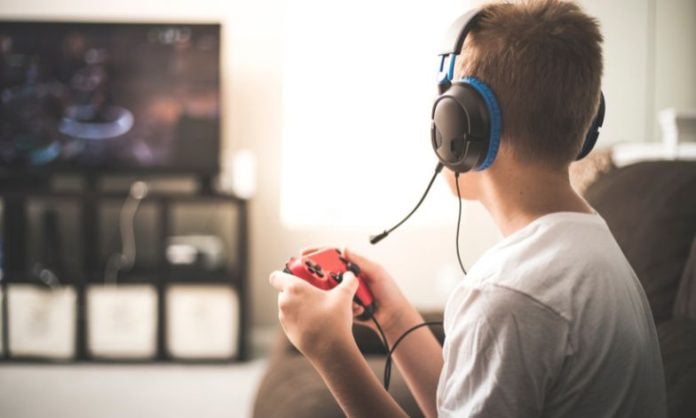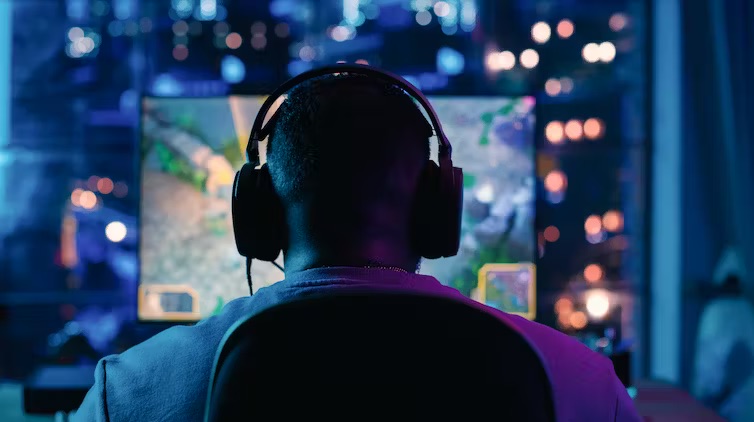We as gamers have all heard it before, be it from our parents, partners, friends, or even politicians – mostly people who don’t play video games at all; video games are bad for you and make you violent. For years now, video games and mental health were only mentioned together whenever someone needed a scapegoat for something else – and sometimes, even a villain.
Back in September, Utah’s governor even cited gaming as one of the root causes behind Charlie Kirk’s assassination.
Headlines have games for everything from short attention spans to aggression and violence. Most parents treated consoles like a ticking time bomb, and anyone who played more than a few hours a week – or dare we say even called it their hobby – was officially wasting their life away, doing something most people deemed not worth doing at all.
Meanwhile, us players knew what those fictional worlds really meant to us. It helped us cope from anxiety, get through school stress, even stay in touch with friends – people we’ve met online and became an integral part of our everyday lives. Sometimes these immersive worlds were our safety net, a space where we felt like ourselves – even if we were wearing ridiculous armor and wearing swords too big to lift.
If this all sounds pretty bleak for the public reception of video games, we have good news for you; while a lot of politicians still use games as a scapegoat for much deeper problems concerning public safety, actual research is finally catching up to what we all knew for a long time. Video games can – if consumed moderately, of course – be beneficial.
Studies from public health organizations such as the NIH and universities and the United Nations are quietly saying it out loud. The relationship between video games and mental health is far more complex, and often far more positive than the old scare campaigns have made your parents believe.
This is not about pretending gaming is perfect or ignoring addiction risks. It is about dropping the lazy narrative that games are automatically bad for young people and actually looking at what they do, how they are used, and where the real problems sit.
The Relationship Between Video Games and Mental Health

The original panic around video games and mental health came out of a very simple formula, and started pretty much as soon as the early iterations of first person shooters (DOOM, Castle Wolfenstein, etc) came about.
Picture this: Young person struggles. Young person also plays games. Therefore, the games must be the problem – see where we’re going with this? It was the easiest common denominator, and also, let’s face it, pretty low hanging fruit.
Early studies conducted often leaned on self-reported playtime and narrow definitions of wellbeing, which, as we all know, aren’t a verifiable criteria under the best circumstances. If someone felt low and also played a lot, games were framed as the cause, rather than something they turned to when life was already going badly. The nuance was missing, but the headlines were catchy, so obviously that bit caught on with the public – a bit like the D&D demonic pandemic of the 70s.
Culturally, it did not help that gaming was treated as childish or antisocial, as a lot of things that are new are being perceived. Concerned parents saw kids locked in their rooms with headsets on and assumed isolation, not realising those sessions were often the only time their kid felt confident talking to other people.
Add a few tragic news stories where games were named as a convenient scapegoat, and the script basically wrote itself. Games were framed as a threat, and any conversation about video games and mental health started from fear instead of evidence. It just seems so human to us, whenever something comes along that the older generation doesn’t understand, it must be bad.
New Research Reveals Positive Correlation Between Video Games and Mental Health
So let’s get back to the 2020s, where recent studies flip a lot of those old assumptions on their head.
One narrative review from the NIH in 2023 looked specifically at commercial games, and their impact on symptoms of depression, anxiety, and other mental health issues. If you guessed that they didn’t find a universal problem, but instead highlighted how certain games can support emotional regulation, provide distraction from intrusive thoughts, and even train cognitive flexibility, you’d be right on the money.
Another major shift came when researchers started using real playtime data instead of asking people to guess how long they played. An Oxford based team did exactly that and found something awkward for the critics. Players who spent more time in certain games reported higher levels of wellbeing, not less. In other words, more play did not automatically equal worse mental health.
The United Nations has gone even further, commissioning large global surveys on video games and mental health. Their latest Power of Play work shows most players associate gaming with stress relief, reduced loneliness, and a sense of belonging. In Europe, a clear majority of respondents said games help them feel less stressed and more connected to others.
None of this means gaming is a magic cure for serious conditions, nor does it mean, that gaming 24/7 is a good idea – gaming addiction is a real thing, and especially parents of young players should moderate gaming behavior.
But what it does mean, is the blanket claim that video games are bad for mental wellbeing simply doesn’t hold up, especially not considering the large sample sizes, the real behavior of modern players, and the variety of games we play on a regular basis.
Gaming Culture is Changing
If we compare titles from the late 90s or even 2000s to titles coming out today, there are two observations we can make: Firstly, the culture around video games and what topics they can tackle, which stories they can tell and what systems we implement are completely different to way back then.
Developers are no longer just making power fantasies and puzzle loops, instead they are building stories that tackle grief, anxiety, trauma, and recovery head on. Real world application comes into play, with cozy titles relieving stress and the advent of VR headsets providing a way to meditate digitally.
This puts video games as a medium of the same cultural significance as movies or even books, and the times where we demonize both, in order to find a scapegoat for human behavior that has always existed are over too. Players are not just killing time anymore, they are seeking games that help them process what they are going through, even if they didn’t know they were doing it in the first place.
Secondly, the variety of games released couldn’t be more diverse. In the 90s, what did we have? Shooters, RPGs, Strategy games, at least on a broader scale. Now we have all sorts of genres and ways of storytelling, and most of which do not shy away from uncomfortable topics.
Developers are catching on too, with them partnering with organisations for mental health campaigns, and charity streams raise serious money to fund support lines and coping tools.
During the pandemic, lockdowns hit hard in terms of mental health. So what did games bring to the table? They turned into social lifelines. Friends met in online lobbies, when they couldn’t in real life, and that kept a lot of people from feeling completely cut off.
You can also see the cultural change in how younger players talk about their own struggles. It is far more common now to see streamers or esports pros openly discuss burnout, anxiety, or therapy, and to have their communities respond with support instead of mockery. That normalisation matters.
It turns video games and mental health from a shameful secret into a public, honest conversation.
Helping Young Players Consume Video Games in a Healthier Way
If we accept that the link between video games and mental health is not automatically negative, the obvious question becomes what healthy use looks like, especially for younger players. The boring truth is that the usual balance rules still apply. Sleep, school, exercise, and offline friendships all need space. If gaming crushes all of those, there is a problem.
The World Health Organization does recognise gaming disorder as a real condition, but also stresses that it affects only a tiny fraction of players. For most people, especially children and teens, the bigger issue is not the existence of games but the lack of guidance around boundaries and communication.
A healthier approach starts with treating games the way we treat any other powerful hobby. Parents actually ask what their kids are playing and why they like it, rather than only worrying about screen time.
Schools and youth workers use games as a bridge to talk about teamwork, problem solving, and emotional skills. Mental health professionals are increasingly open to asking about favourite games and, where appropriate, using them as tools rather than threats.
Where Does This Leave Video Games and Mental Health in the End?
Video games and mental health are intertwined in multiple ways, with a lot of these effects being positive.
But there will always be edge cases, where gaming turns compulsive and harmful, just like with things like eating, exercise or work. But what these cases deserve is proper clinical attention, not a moral panic in order to demonize something, most people doing the demonizing have no clue about.
Dropping the stigma around the harmful effects of video games in regards to mental health, does not mean you should ignore the risks entirely. Ignoring your duties and social life for a grind in an MMO is still a bad idea. Playing video games, instead of helping your wife with your newborn baby is still a bad idea. Luckily, since the issues and benefits of playing video games are slowly but surely being displayed more transparently, there are numerous organizations you can turn to, should your favorite pastime have consumed your life in a non-healthy way.






